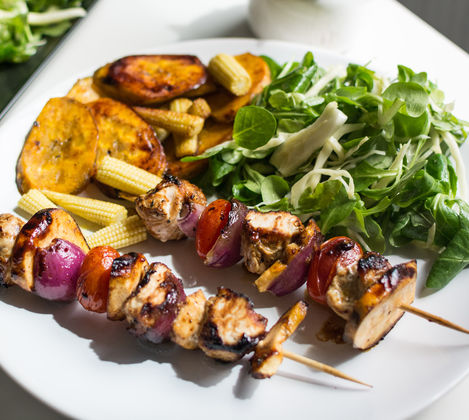We’ve all heard it – “You want to clean up your body?… Clean up your food and Eat Clean!”
But what exactly does that mean? As Psychology Today author Susan McQuillan (M.S.,RDN) very justly asks – is anyone actually eating dirty? As in dirty food?
Well, not necessarily. These days ‘eating clean’ simply means, eating healthy. Which thank goodness! Because having to power wash and then sterilize our food just seems like too much extra work in my opinion. Lucky for us, we have people like Susan who’ve already pointed out some key aspects of eating clean and laid them out nicely for us dirty eaters to understand. Here they are:
Eat whole foods
That means avoiding processed foods and refined foods as much as you can to eat healthy. They usually have fiber and other nutrients removed, while other ingredients like sugar, salt and preservatives are often added. This, in turn, means buying very few foods that come in boxes, cans, or other types of packaging.
Avoid agricultural chemicals
That means buying organic when you can and buying foods like whole fruits, vegetables and grains, that can be washed before you prepare them.
Choose foods that are nutrient-dense
That means foods that are rich in vitamins, minerals, phytochemicals, fiber, protein, and healthy fats—key components of eating clean. That means all the usual suspects: more whole fruits and veggies, whole grain and high-fiber dishes, legumes, and the healthful fats found in nuts, avocados, and seafood.
Eat more plant protein and less meat
Get more protein from beans, lentils, split peas, nuts, and high-protein grains like quinoa, spelt, and oats. A diet that is high in plant protein and low in animal protein is more environmentally sustainable; it’s better for you and better for the planet.t
Buy local foods
Food that travels from nearby farms, bakers and other small providers to your local market usually have a much shorter trip from farm to table, so they may be fresher, retain more nutrients, and taste better than food and food products from bigger commercial farms and factories. The environment also benefits from reduced transportation and fuel use. When you buy local, you also support your own community.
Avoid excessive packaging
Excessive packaging, not only contributes to environmental pollution but, particularly plastics, may also expose foods to harmful chemicals. Clean eating goes beyond just choosing the right foods—it also involves being mindful of how those foods are packaged and stored. Opting for minimally packaged products ensures that you are reducing waste and avoiding unnecessary additives that could impact your health.
By selecting natural, minimally processed foods like whole fruits, vegetables, and grains—often available without excess packaging—you can maintain a clean diet while reducing your ecological footprint. Clean eating is not just about what you eat, but how you source and handle your food.
Take Control of Your Health Today
At Pledge To Fitness®, we believe clean eating is an essential part of a healthier lifestyle. With personalized nutrition coaching, fitness training, and massage therapy, we’re here to help you achieve sustainable results for your body, mind, and spirit.
Ready to start your journey? Book a free consultation online or visit us at our Bellaire studio in the heart of Houston, TX. There’s no risk—just results.



